Twitter has adopted a stricter policy regarding the sharing of POW images from the Russian-Ukrainian conflict. In line with the Geneva Conventions, accounts that post such content may encounter measures like shadowbans or post removal. Twitter aims to protect POWs from exploitation, upholding international humanitarian law. Additionally, the platform has limited the visibility of over 300 Russian government accounts to curb the spread of misinformation. These actions come as part of Twitter's broader efforts to combat propaganda and maintain ethical standards online. Discover more about Twitter's recent initiatives and their impact on social media discourse.
Key Takeaways
- Twitter removes POW photos to comply with Geneva Conventions.
- Accounts sharing such content may face shadowbans.
- Exception for newsworthy content with warning labels.
- Twitter shadowbans Russian government accounts in armed conflicts.
- Aim is to combat misinformation and propaganda during the crisis.
Stricter Policy on POW Photo Posts
Twitter has implemented a stricter policy requiring government or state-affiliated media accounts to remove images or videos of prisoners of war from the Russian invasion of Ukraine to adhere to the Geneva Conventions. This new stance aims to uphold the protections outlined in the Conventions and prevent the dissemination of content that could violate the rights of prisoners of war.
Under this policy, Twitter will take action against accounts sharing such content, including potential shadowbans or removal of posts that feature POW images. The platform acknowledges exceptions for compelling public interest or newsworthy content but will display a warning interstitial for such posts.
Importantly, any content sharing POW images with abusive intent will be promptly removed to prevent exploitation and ensure compliance with the Geneva Conventions. This move has sparked debates surrounding the acceptability of sharing such sensitive media, with varying opinions on whether a complete ban aligns with international laws.
Geneva Convention Compliance Measures

Twitter's alignment with the Geneva Conventions involves strict measures to remove POW images from the Russian invasion of Ukraine, upholding international humanitarian law.
By safeguarding POWs from violence and humiliation, Twitter's policy aims to maintain respect for the principles of the Geneva Conventions.
This approach underscores the platform's commitment to compliance with international standards and mitigating potential violations through proactive content moderation.
Twitter's Image Policy
The new image policy implemented by the platform aligns with the Geneva Conventions by enforcing the removal of POW images and videos from the Russian invasion of Ukraine to uphold international humanitarian law. Twitter's stance on this matter is clear: content depicting prisoners of war (POWs) from the Russian government's invasion will be promptly taken down to prevent violations of the Geneva Conventions and protect the dignity and rights of those individuals. However, exceptions may be made for content deemed newsworthy or in compelling public interest, although these posts will carry warning labels to inform users of the sensitive nature of the material.
To provide more clarity, the table below outlines the key points related to Twitter's image policy regarding POW images and videos:
| Aspect | Details |
|---|---|
| Policy Alignment | Ensuring removal of POW media from Russian invasion to comply with Geneva Conventions |
| Exception Criteria | Newsworthy or public interest content may be allowed with warning labels |
| Content Enforcement | Removal of content sharing POW images with abusive intent to prevent harm spread |
Handling Sensitive Content
With a focus on upholding international humanitarian law, the handling of sensitive content, particularly regarding POW images and videos in the context of the Russian invasion of Ukraine, is a critical aspect of social media platform policies.
Twitter's new policy aligns with the Geneva Conventions by requesting the removal of POW images/videos from government or state-affiliated media accounts. This move aims to prevent violations of international humanitarian law by prohibiting the dissemination of content that infringes upon the rights of prisoners of war.
While Twitter may allow exceptions for compelling public interest or newsworthy POW content, abusive sharing of such media will lead to content removal. This underscores the platform's commitment to ethical content dissemination.
The provision seeks to curb the misuse and exploitation of POW images/videos on social media platforms, emphasizing the importance of respecting the dignity and rights of prisoners of war.
Impact on Diplomacy
Upholding international humanitarian law through stringent content policies has a significant impact on diplomatic relations amidst the current crisis. Twitter's alignment with the Geneva Conventions by requiring the removal of POW images from Russian government accounts demonstrates a commitment to upholding ethical standards and respecting the rights of prisoners of war.
By restricting the dissemination of content that could harm or exploit POWs, Twitter's policy aims to prevent violations of international humanitarian law. While exceptions may be made for newsworthy content, the overarching goal is to protect the dignity of prisoners of war and prevent their exposure to violence, insults, or public curiosity.
These measures not only reflect Twitter's dedication to international norms and standards but also highlight the platform's role in promoting ethical content dissemination during conflicts. By enforcing these policies, Twitter contributes to the broader effort of upholding the principles of the Geneva Conventions and safeguarding the well-being of individuals affected by armed conflicts.
Shadowbanning of Russian Government Accounts

Twitter's decision to shadowban over 300 Russian government accounts is aimed at balancing information dissemination during armed interstate conflicts. By limiting the visibility of these accounts, Twitter aims to address the information imbalance caused by governments restricting citizens' access to free information while still utilizing these platforms.
This move raises legal implications for Twitter regarding freedom of speech and the regulation of online content from state actors.
Impact of Shadowbanning
The shadowbanning of Russian government accounts on Twitter aims to address information imbalances caused by governments restricting access to free information during armed interstate conflicts. This action by Twitter is a response to states involved in conflicts limiting the flow of information to their citizens while using platforms like Twitter to disseminate their messages.
- Shadowbanning Russian government accounts helps prevent the spread of potentially biased or misleading information during conflicts.
- By reducing the visibility of these accounts, Twitter aims to promote a more balanced and open flow of information on its platform.
- This measure serves as a way for Twitter to uphold its commitment to providing a space for diverse perspectives while mitigating the impact of government-controlled narratives on the platform.
Legal Implications for Twitter
Amidst the shadowbanning of Russian government accounts, Twitter faces potential legal implications stemming from its actions. By shadowbanning these accounts, Twitter is effectively limiting their visibility on the platform, a move that could be seen as a form of censorship by the Russian government. This action raises questions regarding the application of international law, specifically concerning freedom of expression and access to information. The shadowbans on Russian government accounts might be viewed as a violation of these rights, potentially leading to legal challenges for Twitter.
Given the delicate political situation surrounding the conflict and Twitter's decision to impose restrictions on government accounts in conflict zones, the legal implications could extend beyond just the platform itself. It's crucial for Twitter to carefully navigate these waters to ensure compliance with international laws and regulations while also upholding its own policies regarding content moderation. The repercussions of shadowbanning Russian government accounts could have broader implications for Twitter's operations and standing in the international community.
Amplification Refusal to Russian Content
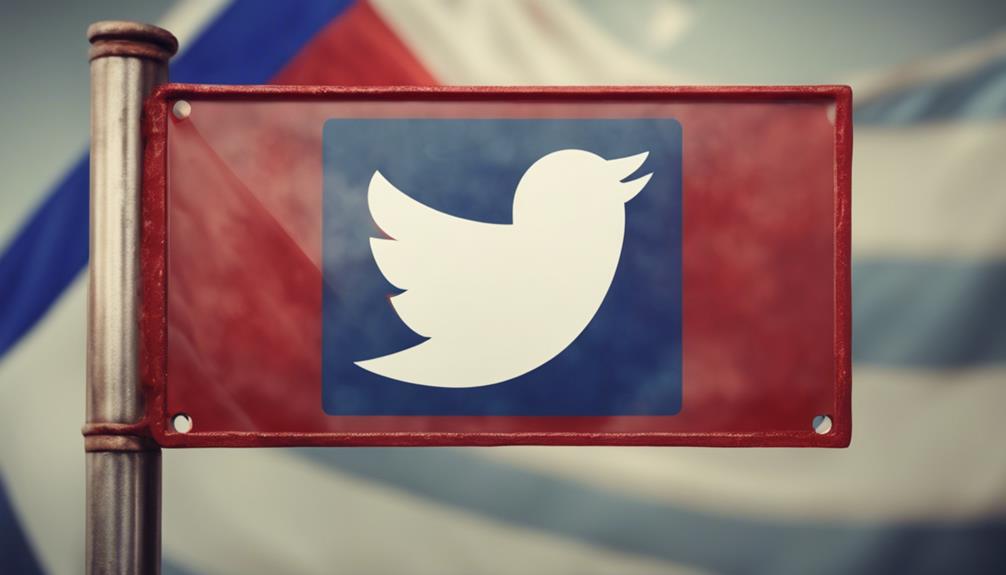
In response to Russia's invasion of Ukraine, Twitter has taken a firm stance by declining to amplify or recommend over 300 Russian government accounts. This decision is part of Twitter's effort to guarantee the free flow of information and reduce the visibility of Russian government content on the platform.
Specifically, accounts run by governments involved in armed interstate conflicts that restrict access to information won't be recommended by Twitter. This move marks the first implementation of such a policy against Russia and is a significant step in addressing the amplification of potentially biased or misleading content.
Critics have highlighted the need for a complete ban on Russian government accounts, citing inconsistencies in Twitter's previous approach towards Russian state media. As the platform continues to navigate the complexities of content moderation during times of conflict, this refusal to amplify Russian government accounts signals Twitter's commitment to promoting transparency and responsible information sharing.
Combating Misinformation and Propaganda

Twitter's actions against government-affiliated accounts sharing POW content aim to curb the spread of misinformation and propaganda during the Russian invasion of Ukraine. By requesting the removal of such content and shadowbanning Russian government accounts, Twitter is taking steps to uphold ethical standards and international humanitarian law on its platform.
These efforts reflect a broader commitment to combatting misinformation and propaganda by holding governments involved in armed conflicts accountable for their online actions.
Misinformation Crackdown Efforts
Efforts to combat misinformation and propaganda are intensifying on Twitter as the platform takes a stricter stance on shadowbanning Russian government accounts involved in armed conflicts. This crackdown on Russian government accounts aims to curb the spread of false information and propaganda related to ongoing conflicts, particularly in response to the invasion of Ukraine. By shadowbanning over 300 Russian government accounts, including that of President Putin, Twitter is actively working to prevent the dissemination of misleading content on its platform.
Twitter is cracking down on misinformation and propaganda by limiting the visibility of Russian government accounts involved in armed conflicts.
The platform aims to combat the spread of false information by shadowbanning over 300 Russian government accounts, including President Putin's.
Twitter's stricter policies on government accounts in conflict zones reflect efforts to address information imbalances and uphold ethical standards.
Propaganda Detection Strategies
To enhance its propaganda detection strategies, Twitter has implemented a new policy requesting the removal of POW photos and videos from government or state-affiliated media accounts. This move is part of Twitter's broader effort to combat misinformation and propaganda by limiting the spread of potentially harmful imagery. In cases where the content may be in the public interest, warning labels will be applied to maintain transparency while protecting users from graphic material.
In line with these measures, Twitter has also taken steps to shadowban Russian government accounts to reduce the visibility of biased or misleading information during conflicts. By focusing on propaganda detection, Twitter aligns its actions with ethical standards and international humanitarian law in content dissemination. These efforts aim to foster a more responsible and transparent online environment, especially concerning conflict-related content.
Twitter's commitment to addressing the dissemination of misinformation and propaganda underscores its dedication to upholding integrity and accuracy on its platform.
Social Media Responsibility
During times of global crisis, social media platforms play a crucial role in combating misinformation and propaganda through strategic content moderation.
Twitter's recent policy adjustment targets the dissemination of POW photos and videos by government accounts involved in armed conflicts, emphasizing the platform's commitment to ethical standards.
The decision to remove such content aligns with international norms, underscoring the responsibility of social media companies in mitigating the spread of harmful information during turbulent times.
By shadowbanning Russian government accounts and restricting their visibility, Twitter aims to provide context to discussions surrounding global conflicts and combat the propagation of propaganda.
These measures reflect the ongoing challenge faced by social media platforms in striking a balance between upholding freedom of expression and preventing the circulation of sensitive or misleading content. As the platform takes steps to address concerns about the misuse of its services for propagandistic purposes, it underscores the critical role that social media companies play in promoting responsible information dissemination during periods of crisis.
Twitter's Commitment to Ethics

Twitter's commitment to ethical standards is evident in its new policy aligning with international humanitarian law to prevent the dissemination of content violating the Geneva Conventions. The platform's decision to request the removal of images or videos of prisoners of war from the Russian invasion of Ukraine demonstrates a clear stance on ethical content moderation. By removing content that shares POW images with abusive intent, Twitter upholds its dedication to responsible content dissemination. This stricter approach underscores the platform's commitment to protecting the dignity of prisoners of war and adhering to ethical standards in the digital sphere, especially during times of conflict. The policy reflects the delicate balance social media platforms face in managing free speech while ensuring responsible content moderation.
| Ethical Standards | Commitment to Protecting POW Dignity |
|---|---|
| Aligns with humanitarian law | Removes abusive content sharing POW images |
| Upholds Geneva Conventions | Requests removal of POW content from Russian invasion |
Navigating International Conflict Online
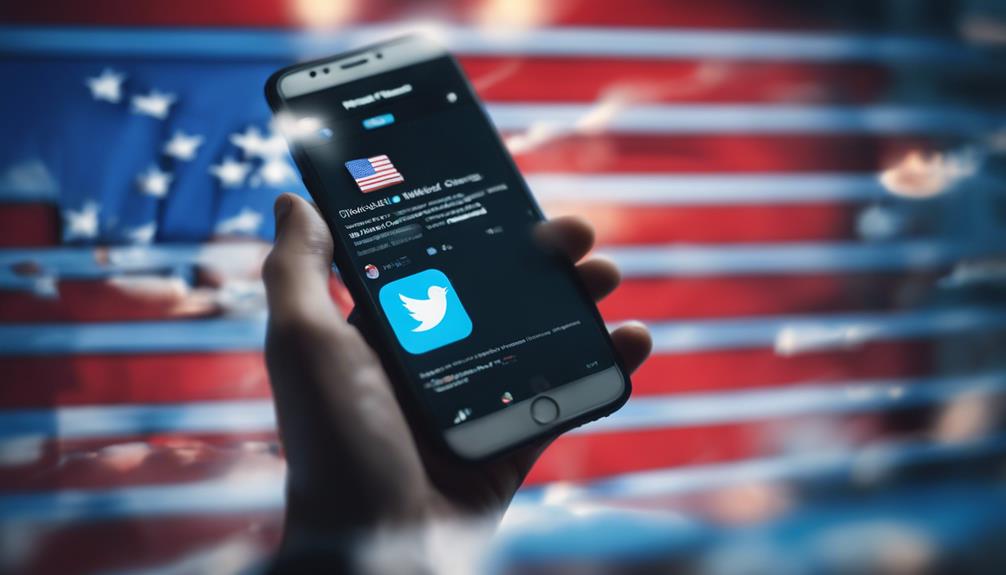
Managing international conflicts online presents challenges such as determining what content to censor, combating social media propaganda, and establishing ethical guidelines for sharing information.
It requires a delicate balance between upholding free speech, preventing the spread of harmful content, and adhering to international laws.
Platforms like Twitter are at the forefront of this complex task, aiming to mitigate the negative impacts of online information dissemination during times of conflict.
Online Censorship Challenges
In responding to international conflicts online, social media platforms face significant challenges in maneuvering through the complexities of online censorship.
Social media platforms must navigate differing interpretations of the Geneva Conventions when addressing the dissemination of POW images from conflicts, like the Russian invasion of Ukraine.
Balancing the enforcement of ethical standards on harmful content with the need to uphold freedom of expression poses a challenge for platforms like Twitter.
Shadowbanning Russian government accounts to counteract restricted access to information by the government adds a layer of complexity to online censorship efforts.
These challenges highlight the delicate balance that platforms must strike between regulating content related to armed conflicts, such as POW photos, and ensuring that the dissemination of information aligns with international humanitarian laws like the Geneva Conventions. Twitter's recent actions underscore the platform's commitment to upholding ethical standards and addressing information imbalances in the online sphere.
Social Media Propaganda
Amidst international conflicts, social media platforms grapple with the challenge of managing social media propaganda effectively.
Twitter, in response to the Russian invasion of Ukraine, has implemented a new policy requiring the removal of POW images and videos from Russian government or state-affiliated media accounts. This move aligns with efforts to prevent the dissemination of content that violates the Geneva Conventions' protections for prisoners of war.
Additionally, Twitter has taken steps to shadowban Russian government accounts by limiting their visibility and excluding them from follow recommendations. These actions aim to address severe information imbalances caused by governments that restrict access to information while utilizing social media platforms for dissemination.
Social media companies like Twitter face the delicate task of balancing free speech with responsible content moderation during international conflicts, highlighting the complex nature of managing social media propaganda in such sensitive contexts.
Ethical Sharing Guidelines
One key aspect to consider when discussing ethical sharing guidelines amidst international conflicts online is the responsible dissemination of sensitive content.
- Adherence to International Humanitarian Law: Upholding the principles outlined in the Geneva Conventions regarding the treatment of prisoners of war and other sensitive matters.
- Balancing Free Speech and Regulation: Striking a delicate balance between allowing freedom of expression and preventing the spread of harmful or unethical content.
- Implementing Effective Sensitive Content Regulation: Developing and enforcing policies that regulate the dissemination of sensitive material while considering the impact on various stakeholders.
In dealing with international conflicts online, it's essential to adhere to ethical sharing guidelines that respect international laws like the Geneva Conventions. Platforms like Twitter are increasingly focusing on regulating sensitive content to uphold ethical standards while ensuring a balance between free speech and responsible online behavior. By implementing effective guidelines and considering the complexities of modern media, the online community can contribute to a more ethical and respectful online environment during times of conflict.
Impact on Social Media Dynamics
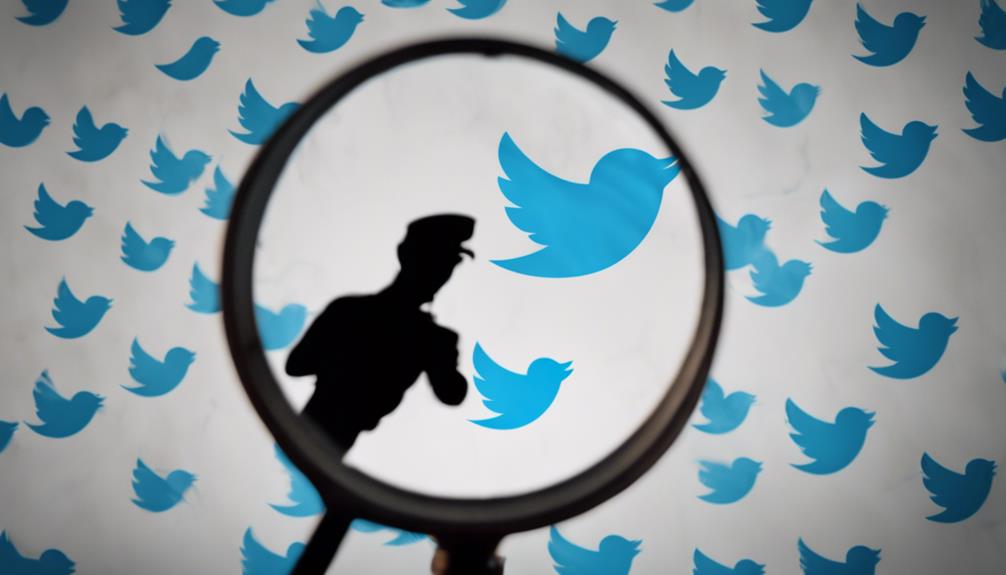
With Twitter's removal of POW photos and videos from government accounts, social media dynamics are undergoing significant shifts in response to the platform's stricter content moderation policies. Russian government accounts facing shadowbans due to the dissemination of sensitive content during conflicts like the Ukraine-Russia conflict are experiencing reduced visibility on Twitter. This move not only aims to address information imbalances but also reflects Twitter's commitment to upholding ethical standards in content dissemination. The platform's decision to regulate such content highlights the challenges faced by social media platforms in maneuvering the fine line between free speech and responsible content moderation, particularly in conflict situations. As a result, the visibility of relevant posts from Russian government accounts is being impacted, signaling a new phase in how social media platforms handle content related to conflicts.
| Impact on Social Media Dynamics | |||
|---|---|---|---|
| Stricter Content Moderation Policies | Reduction in Visibility for Russian Government Accounts | Balancing Free Speech and Responsible Content Moderation | Challenges in Managing Sensitive Content During Conflicts |
Upholding Humanitarian Standards

Twitter's commitment to humanitarian standards is evident through its new policy requiring government or state-affiliated media accounts to remove images or videos of prisoners of war from the Russian invasion of Ukraine. This decision aligns with international humanitarian law, particularly the Geneva Conventions, which safeguard the rights and dignity of prisoners of war. To explore further into the current stance:
- Upholding Ethical Standards: Twitter aims to prevent the dissemination of content that violates the Geneva Conventions by prohibiting the sharing of POW images that could lead to their mistreatment.
- Ensuring Respect for Human Rights: The platform's stricter measures serve to protect the humane treatment of prisoners of war and uphold their rights to dignity and safety during conflicts.
- Promoting Responsible Information Sharing: While exceptions may be made for compelling public interest or newsworthy content, Twitter's warning interstitials on allowed posts aim to maintain ethical standards in sharing sensitive content.
Twitter's actions underscore its dedication to promoting ethical practices and upholding humanitarian values amidst the ongoing conflict.
Enforcement Against Violations
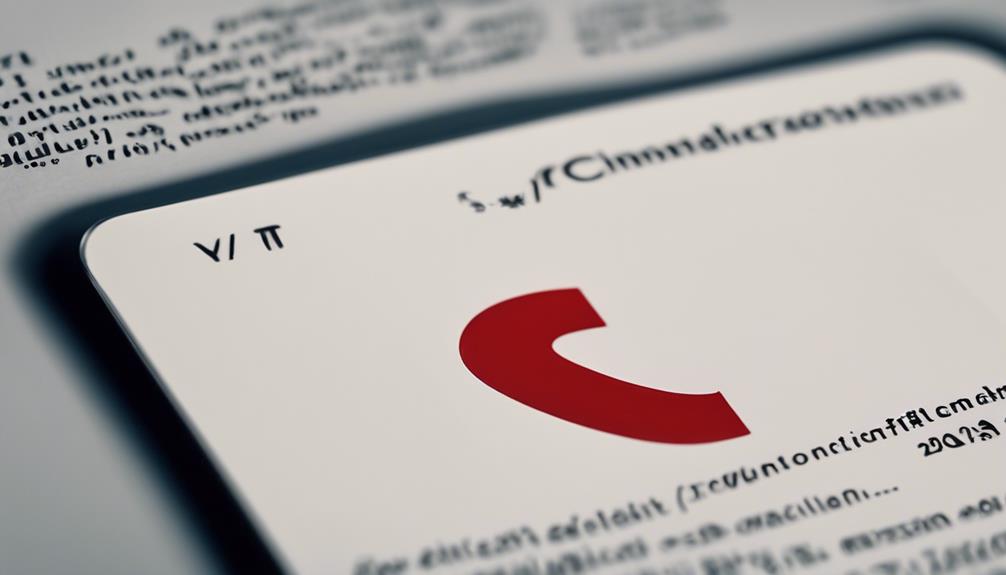
Enforcing strict measures, Twitter takes decisive action against violations of international humanitarian law by government or state-affiliated accounts, particularly in relation to sharing POW photos/videos from the Russian invasion of Ukraine.
Twitter's enforcement includes the removal of such content to align with international humanitarian standards. Russian government accounts are also subject to shadowbanning on the platform, reducing their visibility as a consequence of violating these regulations.
By implementing these measures, Twitter aims to prevent the dissemination of content that breaches the Geneva Conventions, addressing severe information imbalances perpetuated by governments involved in armed interstate conflicts.
The platform's stricter stance reflects concerns about the potential misuse of POW media and violations of ethical standards. Through these actions, Twitter underscores its commitment to upholding international humanitarian law and ensuring that its platform isn't used to propagate content that goes against these fundamental principles.
Addressing Content Violations
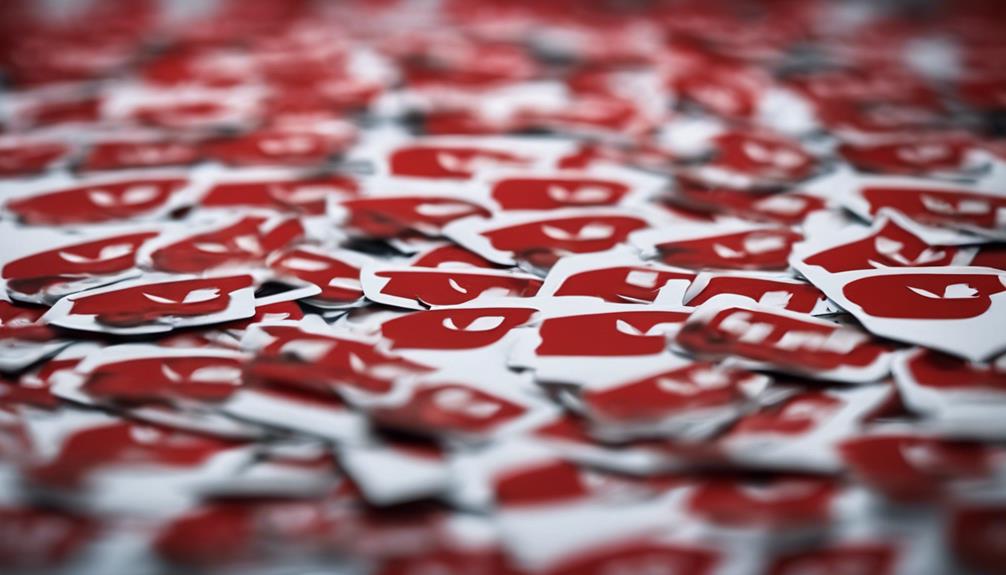
In response to concerns regarding the dissemination of sensitive content, stringent measures have been implemented by Twitter to address violations related to sharing POW photos and videos from the Russian invasion of Ukraine.
- Twitter's new policy mandates government or state-affiliated media accounts to remove any images or videos depicting prisoners of war from the Russian invasion of Ukraine.
- The platform is committed to upholding the principles of the Geneva Conventions, which safeguard POWs from violence, insults, and public curiosity.
- Exceptions may be made for content deemed to serve compelling public interest or newsworthiness, accompanied by a warning interstitial for posts featuring POWs that are permitted.
The decision to enforce these measures reflects Twitter's dedication to upholding ethical standards and international laws concerning the sharing of sensitive content during times of conflict. By addressing content violations related to POW images with a firm stance, Twitter aims to prevent the exploitation of prisoners and their families while promoting responsible information sharing.
Social Media Platform Regulations
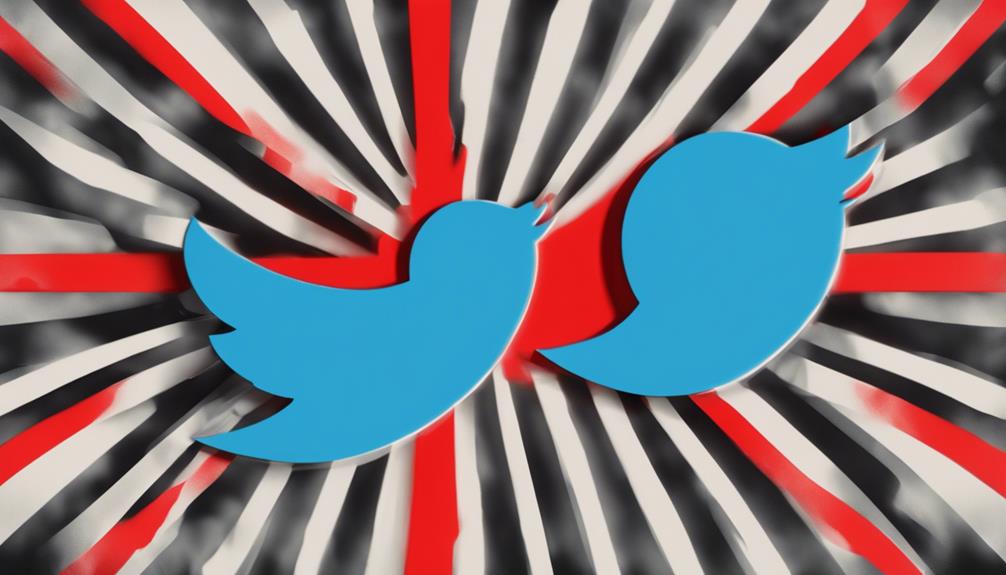
Amid increasing scrutiny over online content, regulations on social media platforms are undergoing significant revisions to address ethical concerns and compliance with international laws.
Twitter's recent policy changes require government or state-affiliated media accounts to refrain from sharing POW images from the Russian invasion of Ukraine in adherence to the Geneva Conventions. Additionally, Russian government accounts are currently experiencing shadowbans on Twitter, reducing their visibility on timelines and search pages due to the ongoing conflict in Ukraine.
This stricter stance by the platform aims to curb the dissemination of content that violates international humanitarian law during armed interstate conflicts. Twitter's decision underscores its dedication to mitigating information imbalances resulting from governments restricting access to free information while utilizing social media platforms for communication.
These updates underscore the challenges faced by social media platforms in regulating sensitive content during times of conflict and crises, highlighting the necessity for stringent regulations to uphold international standards.
Promoting Responsible Online Behavior

By adhering to international humanitarian laws, Twitter's new policy underscores the importance of ethical content dissemination during times of conflict and crisis.
- Twitter's initiative requests the removal of POW images or videos from the Russian invasion of Ukraine to prevent violations of the Geneva Conventions.
- The platform is actively limiting the visibility of Russian government accounts involved in the conflict through shadowbanning to prevent the spread of sensitive content.
- Twitter's decision aligns with international humanitarian laws, emphasizing the significance of upholding ethical standards in content dissemination during conflicts.
Twitter's approach balances the challenges of regulating sensitive content related to conflicts and crisis situations while highlighting the need to promote responsible online behavior. This showcases the platform's commitment to addressing severe information imbalances caused by governments restricting access to information while actively engaging in social media platforms.
Consequences for Disinformation
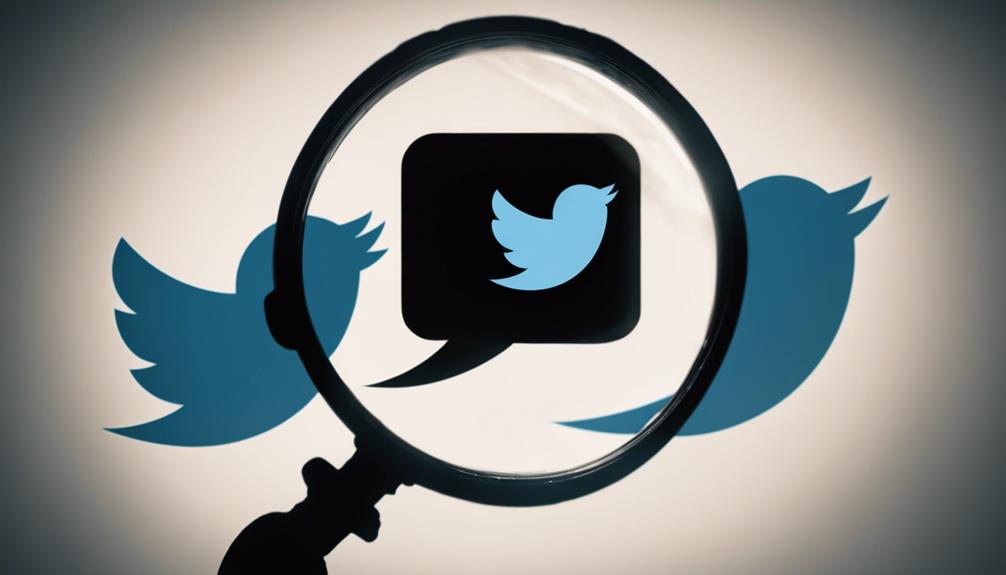
Twitter's strict measures against the dissemination of POW photos not only align with international humanitarian laws but also signal a clear stance on combating disinformation. By requesting government or state-affiliated media accounts to remove images or videos of prisoners of war, Twitter upholds the protections outlined in the Geneva Conventions. This action underscores the platform's commitment to adhering to international law and promoting ethical standards in content dissemination during conflicts.
Additionally, Twitter's shadowbanning of Russian government accounts aims to address severe information imbalances and restrict visibility on timelines and search pages. This targeted approach is directed at states engaged in armed interstate conflicts and those impeding access to free information, such as Russia during the Ukraine invasion. Through these measures, Twitter aims to combat disinformation effectively and maintain integrity in online discourse by holding all parties accountable for their content and actions.
Maintaining Integrity in Online Discourse

In order to guarantee ethical communication standards are upheld, stringent measures have been implemented by the platform regarding content dissemination. Twitter's recent policy adjustments aim to maintain integrity in online discourse, particularly concerning the sharing of sensitive content related to prisoners of war and state-affiliated media accounts involved in armed conflicts. The following points shed light on the platform's efforts:
- Twitter is requesting government or state-affiliated media accounts to remove prisoners of war (POW) content to align with the principles of the Geneva Conventions.
- The platform has resorted to shadowbanning Russian government accounts to address severe information imbalances resulting from their participation in armed conflicts.
- Critics advocate for a thorough ban on sharing POW media, expressing concerns about the potential exploitation of prisoners and their families.
These measures underscore Twitter's commitment to upholding ethical standards and regulating content dissemination in accordance with international humanitarian law.
Frequently Asked Questions
Does Twitter Work in Russia?
Twitter operates in Russia despite facing restrictions and pressure from the government. The platform has been fined for not removing content deemed illegal or extremist and has received demands to censor critical government content. Russian authorities have threatened to block or restrict Twitter if it doesn't comply with regulations.
Despite these challenges, Twitter continues to function in Russia, albeit under close scrutiny and potential censorship.
Conclusion
To sum up, Twitter's stricter stance on POW photos and shadowbanning of Russian government accounts demonstrate a commitment to upholding ethical standards and combatting misinformation.
By refusing to amplify Russian content and enforcing regulations, the platform aims to promote responsible online behavior and maintain integrity in online discourse.
These measures serve as a pivotal step in addressing propaganda and disinformation, safeguarding the reliability and credibility of information shared on social media.










